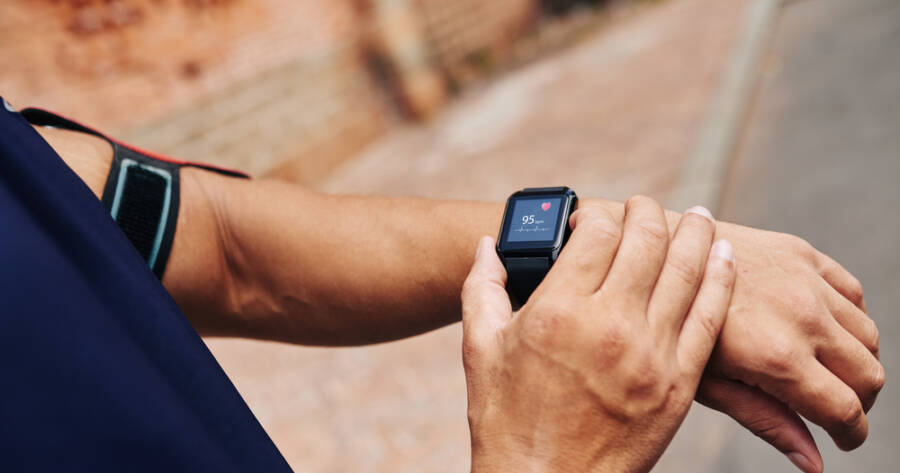Staying active and monitoring your health has never been more convenient, thanks to today’s advanced fitness trackers. From tracking heart rate and sleep patterns to counting steps and monitoring workouts, wearable tech offers valuable insights for all fitness levels. With countless options available, choosing the right device means finding the perfect blend of features, style, and reliability to match your goals.
Key Features to Consider Before Buying a Fitness Tracker
When evaluating fitness trackers, it’s essential to understand the key features available. Some individuals might focus on heart rate tracking, while others may prioritize sleep monitoring or GPS capabilities. Below are some factors worth considering:
- Heart Rate Monitoring: Many modern trackers provide real-time heart rate data, helping users monitor their intensity levels during exercise. This can be useful for those aiming to stay within specific heart rate zones during training.
- Sleep Tracking: Devices with sleep tracking features analyze patterns to offer insights into the quality of rest, which could help users improve sleep habits over time. Some trackers also track different sleep stages, including REM and deep sleep.
- GPS and Activity Tracking: For runners, cyclists, or hikers, a tracker with built-in GPS can log distance, routes, and pace. If GPS isn’t a necessity, some trackers sync with smartphones to use their GPS capabilities.
- Water Resistance: Depending on your lifestyle, water resistance might be crucial. Swimmers will benefit from devices with waterproof ratings, while others may only need basic splash protection.
- Battery Life: Battery performance varies widely among fitness trackers. Some models can last up to two weeks on a single charge, while others—especially those with bright displays or advanced features—may need to be charged every couple of days.
Top Fitness Trackers to Explore in 2025
There are several popular fitness trackers currently available, each offering unique strengths. Below are a few that stand out based on their features and customer reviews.
1. Apple Watch Series 10
The Apple Watch is more than just a fitness tracker; it’s a versatile smartwatch with a focus on health and wellness. While it offers traditional fitness tracking, such as steps and calories burned, it also features advanced tools like an ECG app and blood oxygen measurements. Users can customize workout modes and sync with numerous fitness apps. However, it may be most appealing to those already in the Apple ecosystem due to seamless integration with other Apple devices.
2. Fitbit Charge 6
Fitbit is well-known for its user-friendly trackers, and the Charge 6 continues that trend. With an emphasis on heart rate monitoring, sleep tracking, and guided workouts, the device appeals to those focused on improving overall health. Fitbit’s community feature also adds a social component, helping users stay motivated through challenges and virtual competitions. Its battery life of up to seven days is another key selling point.
3. Garmin Forerunner 265
Designed with athletes in mind, the Garmin Forerunner series excels in activity tracking and performance analysis. The Forerunner 265 offers precise GPS, heart rate variability (HRV) tracking, and training readiness insights. It’s an excellent choice for those training for marathons or triathlons. While its interface may feel overwhelming for beginners, it’s a favorite among serious athletes.
4. Whoop Strap 4.0
Unlike other trackers, the Whoop Strap is focused on recovery, sleep, and strain tracking. It provides detailed metrics on how well the body has recovered from previous workouts, helping users adjust training intensity accordingly. The device doesn’t have a traditional screen, meaning all data is accessed through the app. This tracker is particularly suited for individuals who value optimizing performance and recovery over tracking steps or daily activity.
5. Oura Ring (Gen 3)
The Oura Ring offers a different form factor—fitting all of its technology into a sleek ring. This device focuses primarily on sleep tracking, heart rate, and readiness scores. Though it’s not intended to replace dedicated fitness trackers for exercise monitoring, it appeals to those who prefer minimalist wearables.
Considerations for Different Lifestyles and Goals
While each fitness tracker has unique selling points, the right choice often comes down to personal preferences, goals, and lifestyle. For example:
- Beginners: Those just starting their fitness journey may prefer a user-friendly option like the Fitbit Charge 6. The guided workouts and community features can help them stay on track.
- Athletes: Professional or serious athletes may benefit more from performance-oriented devices like the Garmin Forerunner, which provides advanced metrics and recovery insights.
- Tech Enthusiasts: For individuals who want the latest technology and multifunctionality, the Apple Watch Series 9 offers robust fitness tracking alongside other smartwatch features.
- Health-Conscious Users: Those focused on sleep, recovery, or stress management may appreciate the Oura Ring or the Whoop Strap for their specialized insights.
Choosing the Right Tracker for Your Needs
Fitness trackers can be excellent tools for monitoring health metrics and encouraging physical activity, but no single device will suit everyone perfectly. It’s important to assess your specific needs—whether it’s detailed exercise tracking, heart rate monitoring, or sleep analysis—and find a tracker that aligns with your goals.
Additionally, keeping in mind factors like budget, battery life, and ease of use will help you make an informed decision. With so many models on the market today, there’s likely a fitness tracker out there that fits seamlessly into your lifestyle.




